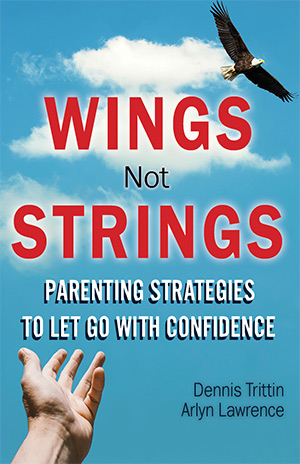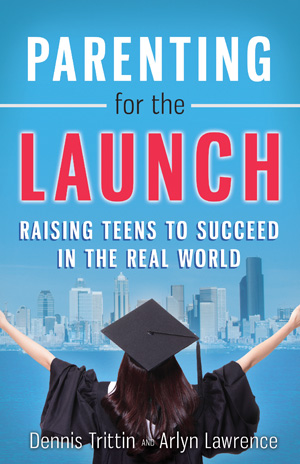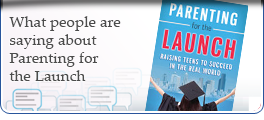What I Wish I Knew at 18: Sneak Peek
Life Perspective
Live life without regrets
Looking back on your life so far, do you have any regrets? Are there things you did or wish you hadn’t? Any relationships that are strained? Although these are some of life’s most important questions, too many wait until the end to ask them—and by then, it’s too late. It’s convenient for us to bury our disappointments and regrets, but eventually they’ll come home to roost. It’s only a matter of time.
Even if your life becomes a masterpiece, you’ll inevitably have some regrets. We all do. However, if you periodically ask yourself the regret question (and then actually do something about it!), you’ll become that much more content with your life.
When it comes to considering life regrets, there is wisdom to be gained from our senior citizens who are in a naturally more reflective stage of life. If you ask them about their life regrets, you’ll likely hear the following:
- I didn’t spend enough time with my loved ones
- I didn’t tell my family and friends that I loved them often enough
- I was too stubborn or proud to admit my mistakes and apologize
- I chose bitterness over reconciliation
- I allowed my life to be consumed by work
- I was too hesitant to take risks and try new things
- I wasted too much time
- I didn’t appreciate the little things in life
- I valued things over relationships
10. I worried too much
Do any of these apply to you? Be honest! Although regrets run the gamut, did you notice that most involve relationships and priorities? This is why it’s so important that your life is balanced and your priorities are right.
So, how does one live a life with few regrets? The answer is to periodically take a “regret check” and then do something about it, as difficult as it may be. This discipline will help you make those needed midcourse corrections and “relationship repairs” along the way. Be forewarned, though: it’s not easy, and it takes a strong dose of courage, humility, and determination.
¥¥¥¥
Take Five:
Do you have any regrets at this point? What, if anything, can you do about them? What are you waiting for?
Don’t define success by riches
“A good name is more desirable than great riches;
to be esteemed is better than silver or gold.”
Proverbs 22:1
Have you ever thought about what “success” means to you? How will you know whether you’ve achieved it in your lifetime? These are incredibly important life questions for you to consider. After all, if you don’t know where you’re going, you’ll never reach your full potential.
One need only look at bookshelves, the entertainment industry, the infomercials, and all the free financial seminars to see that our culture defines success in terms of wealth, possessions, and power. We’re bombarded by “get rich quick” schemes and star glamour. Forget the fact that some of history’s most miserable people have amassed great fortunes; wealth is easily the most common barometer of success. But, for your own good, don’t you buy it for a minute. Money does not buy happiness.
One day, you’ll buy your first new car. The look, smell, and feel are so exciting at first. Then, a few months later after the novelty has worn off and the smell has faded, you don’t feel the same “rush.” It’s just the way it is—and not only with cars. The fact is, when people define their success in monetary terms, they’re rarely ever content. Worse yet, it can lead to financial ruin and corrupted values.
I wish everyone who defines success by riches could appreciate the following quote by Bessie Stanley in the Lincoln Sentinel on November 30, 1905:
“He has achieved success who has lived well, laughed often and loved much; who has gained the respect of intelligent men and the love of little children; who has filled his niche and accomplished his task; who has left the world better than he found it, whether by an improved poppy, a perfect poem, or a rescued soul; who has never lacked appreciation of earth’s beauty or failed to express it; who has always looked for the best in others and given them the best he had; whose life was an inspiration; whose memory a benediction.”
What a beautiful and timeless definition of success and a challenge to us all! The fact is, you are in control of how you define success. Rather than basing it on monetary wealth, consider a more comprehensive definition that would include Bessie’s ideals as well as the following—how you applied your gifts to the betterment of others, the quality of your relationships with others, the strength of your character, and how well you fulfilled your role as spouse and parent. If you focus on elements such as these, rather than on wealth, power, and possessions, you’ll be much more likely to create a true life masterpiece.
¥¥¥¥
Take Five:
Whom do you consider to be the most successful people and why? Looking ahead, how will you define success in your life?
Character
Cultivate a servant’s heart
One of my annual highlights is watching the film classic, “A Christmas Carol.” I love watching the transformation of Ebeneezer Scrooge when the self-centered miser develops a servant’s heart. Granted, it takes a dramatic, catalytic experience late in life to get him there, but he becomes a changed man all the same. Every time I watch this film, I reflect on what more I could have done in the past year to help others. It’s a time of accountability, complete with a promise to do better in the year ahead.
I have special admiration for people who commit their lives to serving others. They’re not motivated by fame or fortune, but rather by joyful service. Their qualities of generosity, empathy, compassion, and kindness come so naturally to them, and they’re inspiring treasures to us all.
I’m convinced that our daughter Lauren was born with a servant’s heart. I first noticed this when she was four during a visit to a McDonald’s playground. She befriended a devastated little girl who had been deliberately abandoned by her big sister. Lauren carefully observed the situation and saw the little girl’s anguish. She approached her, extended her hand, and said, “Come and play with me.” The girl’s tears were soon replaced with joy for those ten brief minutes. While this example may seem rather ordinary, it is illustrative of the many times that Lauren has nurtured people who were socially excluded—a rare breed to find in middle and high schools. Her empathetic heart has often been a blessing to others. Not surprisingly, she is considering a career in child psychology and counseling. I think she’ll be a natural.
How you eventually impact the world will be driven by what you have to offer and what you choose to offer. So, what do you have to offer the world? It’s a profound question, and you’ll find that your answers will change throughout your lifetime. In the end, your assets fall into three categories: your time, talent, and treasure.
But, in order to truly have a servant’s heart, you must also choose to offer your gifts. Otherwise, your assets are on paper only. Thankfully, there are many different avenues by which you can serve others. Some do it through their careers—missionaries, social workers, teachers, and nurses quickly come to mind. Still others approach it through volunteering their time to a worthy cause. If you go this route, there are three main questions to consider:
- What talents and skills do I have to offer?
- What groups or community segments (e.g., youth, elderly, homeless) do I feel most called to help?
- What organizations will allow me to use my talents to help those I feel most passionately about?
When you find an opportunity that allows you to share your gifts with a needy cause that you’re passionate about, you’ll experience untold joy and fulfillment. In my case, it involves teaching teens and adults about finance at Lighthouse Christian School and serving on its board. Never would I have dreamed that my 27-year investment career would be put to such good use!
A final approach, and one that I would argue is the best, is to develop a servant’s heart as a way of life. It is to embody the qualities of generosity and compassion in your everyday dealings with people. It is to proactively and instinctively use all three of your asset categories when situations arise.
Living life with a servant’s heart will bring help and hope to others and immense joy to you in return. You’ll receive far more in return than what you give. Nothing compares with using your gifts and talents to improve the world around you. You’ll see, if you haven’t already.
¥¥¥¥
Take Five:
How have you served others in your life? Looking ahead, what other ways do you envision using your time, talent, and treasure to make the world a better place?
Don’t say something about someone else that you wouldn’t mind them overhearing
Words have incredible power. They can be uplifting or destructive. They can be true or false. They can stay solely with the person with whom you’ve communicated or go in a million different directions outside of your control. This is especially true if you express them in an email, Facebook, Twitter, or text.
Words also reveal much about our character—especially when we talk about someone who is not present. They speak to our trustworthiness, loyalty, kindness, and respect.
If you want to have masterpiece-like character, I challenge you to commit to only saying something about another person that you wouldn’t mind them overhearing. Try it even for a week and you’ll be amazed by how this affects your choice of words. You’ll also be admired by others for your tact and restraint.
If I were President, I would decree a national day of saying only positive things about someone who is not present. Such a simple gesture, if practiced on a broad scale, would be nothing short of transformational. It would make all of us better people and the world a better place.
¥¥¥¥
Take Five:
For the next week, only say positive things about others who are not a party to your conversation. You’ll be amazed at how it affects what you say and how restraining it will feel at first. Then, you’ll notice how it elevates your spirit and character. Can you imagine what it would be like if we all practiced this? A world without gossip columnists?
Relationships and Communication
Get connected with others who share your interests and values
I’ll never forget my first week of college. Out of a student body of 12,000, I knew a whopping four! That was just a tad different than my high school graduating class of 265 kids whom I knew like the back of my hand. Now there were 11,996 complete strangers surrounding me! I felt like one of those letters swimming around in a bowl of alphabet soup.
As intimidating as this was in the beginning, I took some comfort from the fact that everyone else was in the same boat. We had all landed on the college campus at University of Wisconsin—Eau Claire—and somehow we’d figure it out. Most of us would remain strangers, some would become acquaintances, fewer still would become close friends, and perhaps one might eventually become the love of our lives. What an incredible adventure! I’ll never forget the nervous excitement I felt. (Okay, I’ll admit that the 2.5 to 1.0 female to male student ratio didn’t hurt either!)
Sadly, I’ve spoken with many parents in the past few years whose own college freshmen just couldn’t handle it. One semster away was all they could muster before they returned home to what was safe and familiar. Unfortunately, they would soon learn that the security from their high school days no longer existed because everyone had since scattered to fulfill their own dreams. Once they came to understand this harsh reality, depression would set it and they’d flounder. This unfortunate situation is more common than you think.
So, how do you get off to a good social start in a new environment? The answer is you need the right mindset and the right methods.
Beginning with your mindset, you first need to be patient with yourself. Making new friends takes time, especially if you’re in a completely new environment. Remember that your closest friendships today didn’t happen overnight. Don’t put artificial timetables on yourself. Rather, let it happen naturally. Second, draw strength from the friends you’ve made through the years, knowing that you’ve succeeded at this before. Finally, have a positive attitude about yourself…you are worth getting to know. (And if you don’t believe this, it’s time for a serious attitude adjustment!)
Besides having the right mindset, you also need effective methods. The first step is to reflect on your passions, interests, and values. Are there particular causes or organizations that you’re especially passionate about? What hobbies, subjects, and pursuits do you enjoy, and how do you like to spend your free time? What are the character traits and values that you hold most dear? Once you answer these questions, see if there are student or community groups (including places of worship) or extracurricular activities that offer opportunities for involvement and new friendships (I especially enjoyed intramural sports). Affinity groups such as these can help channel your effort toward meeting people you can relate to. This is not meant to suggest that you only want to meet people who share your interests, but it’s a good starting place.
Regardless of where and how you meet new people, it’s extremely important that they share your values. Unfortunately, figuring that out only comes through trial and error. They might share your interests, but if they don’t share your values, it’s best to move on. This is especially so when it involves potentially romantic relationships. You’re only delaying the inevitable by staying in a relationship that lacks compatible values. Don’t ever delude yourself into thinking you’re the exception!
Finally, one of the best ways to meet new people is through networking with your trusted friends. Find opportunities to get to know the friends of your friends…and do the same with them. Over time, your friendships will multiply.
¥¥¥¥
Take Five:
How confident are you when meeting new people? Are there particular affinity groups that match your passion areas, interests, and values?
How you say it can matter more than what you say
I wish I had a nickel for every time I’ve said, “I didn’t mean it like that!” I’d be a very wealthy man! The sad fact is, the messages we send can be received differently than we intend. And, when it happens, it can be a disaster.
Four things affect how our messages are received by others…and any one of them can be the cause of major misunderstandings if we’re not careful. First, are the words themselves, and how accurately they convey our intended message. Second, is how our words are delivered through our tone of voice, facial expressions, and body language. Third, is the form of the communication—verbal or written. The fourth factor, which unfortunately can’t be controlled, is the filter that is applied by our audience when they listen to us. Allow me to elaborate on each.
Word choice is huge, especially when we discuss sensitive topics or relationships. In these situations, our emotions can interfere with our thinking, and we often use more provocative language that we later regret. In the “heat of battle,” we can be so focused on proving our point that we forget to show tact, empathy, and understanding to the other party. The end result is that things spiral out of control, and frustration and anger take over.
In other cases, our word choice is fine but our manner of delivery gets in the way. Examples include speaking with a harsh or condescending tone of voice or displaying arrogant facial expressions or body language. No matter what words we use, if the “packaging” is incongruent, our message will lack credibility and rub people the wrong way.
The form of our message is also critical. The advantage of verbal communication is that the audience hears you speak, allowing your tone to help convey your ideas. In contrast, written communications (e.g., letters, email, memos, social websites) have a major disadvantage because the audience imposes your tone of voice while they read. Their tone may be light years away from what you intended. If so, you have a big problem on your hands.
The last aspect is the filter that the receiving party applies to your words. Depending on whether they like or distrust you, whether they’re in a good or bad mood, or are focused or distracted by other thoughts, your message may not get through in the way you intended. Unfortunately, this happens all the time (especially with written communications), and you can’t control it.
Miscommunication is so common. It happens to all of us, probably more often than we’d care to admit. There are, however, some simple things you can do to minimize it:
- Carefully choose your words (think before you speak!)
- Be sure your expression and words are congruent
- Strive to be empathetic by putting yourself in the audience’s position
- Closely monitor the receiver’s body language to see whether he or she may be interpreting your words differently than you intend. If you notice a frown, for example, clarify your comments to ensure you are on the same page.
- Be a discerning listener when they respond
- Be quick to apologize for any misunderstandings
- Never say anything in written form that is provocative or highly critical
¥¥¥¥
Take Five:
Do you pay close attention to how your words are received? Are you careful not to write potentially controversial messages that could be misinterpreted?
Spiritual Life
Count your blessings
Have you ever noticed that we appreciate things more after we lose them? Our relationships, health, or job? How about our sense of freedom and security after 9/11? It’s unfortunate, but true, that our level of appreciation and gratitude diminishes when things are stable in our lives. Just like the 500th kiss doesn’t have quite the same magic as the first, we get used to good things after awhile.
With each passing day, I value my simple and modest upbringing more and more. We lived in a small house in a small town with limited financial means and yet we were amazingly content. Could it be that the less we have the more we appreciate?
As I reflect on the people I’ve known, those who regularly count their blessings (big or small) seem to be the most content in life. They take very little for granted, appreciate life’s simple pleasures, and have the most joyful spirits. They also take life’s major challenges in stride because they also remember what they’re thankful for.
Your disposition, outlook, and ability to handle life’s disappointments will improve if you take this pointer to heart. Start today by listing everything you’re thankful for, and keep your list in a handy place. Refer to it often, especially when your seas are stormy.
¥¥¥¥
Take Five:
Do you regularly count your blessings, even in difficult times? Who are the people in your life who do this the most? Do you notice the difference in their dispositions?
Keep the faith during times of trial
“Faith is the bird that sings when the dawn is still dark”
Rabindranath Tagore
When experiencing their most difficult times, people of faith generally respond in one of two ways. They either draw closer to God and solicit the prayers of loved ones or they turn away from God, assuming He doesn’t care or isn’t listening. All believers have experienced these reactions, and I’m certainly no exception. However, when I reflect on my toughest periods, the times when I kept the faith always proved to be the best. When I didn’t, I couldn’t help feeling that I was simply a “fair weather” believer.
We all face dark times when we are overwhelmed by fear or hopelessness. The most vivid example for me was when my wife Jeanne was hospitalized for 16 days after suffering a grand mal seizure due to an allergic reaction. During this period, the doctors were baffled by her complete loss of cognitive ability. She couldn’t recall anyone or anything and didn’t even know her name. It was terrifying because the doctors didn’t know what her ultimate prognosis would be and it wasn’t looking good. This was an incredibly scary time.
Thankfully, I was supported by a team of faithful and prayerful believers. The power of their prayers sustained me during this trial and eventually led to the source of the problem. Jeanne was allergic to the seizure medicine and its interaction with her other medicines caused her loss of cognition. Once that was determined and she was taken off the medicine, Jeanne snapped out of it the very next day! The doctors were amazed and I was overjoyed to have my wife back again.
For me, this was the greatest faith story of my life because no one knew whether her mind would ever be restored. Encouraged by our many friends, I hung onto my faith in God throughout this trial. To this day, when I reflect on God’s provision during this ordeal. I consider it the most extraordinary 16 days of my life.
If you’re a person of faith, strive to keep it, especially during your toughest battles. One day, you’ll see the difference it made, even if your prayers weren’t answered in the way you had hoped. Even in those situations, my faith helps me manage my way through the storm.
¥¥¥¥
Take Five:
How well does your faith hold up during times of trial? Do you come out of those times knowing God and yourself better than you did before the trial? Reflect on past situations and how you reacted to them, from a spiritual point of view.
Handling Adversity
Adversity can prepare us for greater things and often makes sense in retrospect
“You may not realize it when it happens, but a kick in the teeth
may be the best thing in the world for you.”
Walt Disney
One of life’s greatest adventures is seeing what becomes of our trials. At our bleakest hour, it’s hard to fathom that something good might come of our woes. Often, though, this is precisely what happens.
One of the most profound lessons I’ve learned (but certainly didn’t appreciate when I was 18), is that good things often arise from our most difficult times. It may take years for us to realize it, but our toughest times might be preparation for something better. Consider these real life examples:
- My wife’s health challenges prepared her to mentor others who are experiencing similar issues
- Bombing my calculus final made me aware of my math limitations and motivated me to select a different (and better fitting) major
- A difficult investment performance period taught me important lessons about humility and how to service clients in tough situations
- The breakup of a long-term relationship avoided a worse situation had we gotten married
- A heart attack victim’s extended hospital stay gave him the needed time to reflect on his life and repair broken relationships
- The employer who didn’t hire me conducted massive layoffs in the next year
- Financial troubles are finally teaching people to live within their means
These are but a few of the endless examples of life’s lemons turning into lemonade. Periods of adversity don’t always turn out rosy, but it happens more often than you’d think. You just don’t know it while you’re living through it.
When you’re experiencing a personal trial, it pays to consider that it might be preparation for something greater. After all, our greatest character growth comes from enduring life’s greatest challenges!
¥¥¥¥
Take Five:
Consider some of the major life trials you’ve experienced. Are you able to see some good that came out of those periods? How was your character affected by it? Can you think of people you know who have experienced significant adversity? How has it shaped them for the better?
Take charge of your worries
“Worry never robs tomorrow of its sorrow, it only saps today of its joy.”
Leo Buscaglia
Have you ever noticed that some people are chronic worriers while others take things in stride? I’ve often wondered how hard life must be for worriers. They face the same uncertainties as us easygoing types, but somehow always manage to focus on what could go wrong. It shows up in their stress level and disposition.
I had a conversation the other day with a student who was deeply concerned over her math test. This bright young lady is always concerned over her tests and yet is a straight A student. (In this case, she would score a 95.) I asked her whether she worries a lot, and she replied, “All the time.” Then, I asked her to reflect on all of the worries she’s ever had and how many actually turned out to be justified. She promptly admitted with a look of surprise, “Hardly any.” I said that I figured as much and that I wanted her to think long and hard about our conversation. For her sake, I hope she did.
Very early in life, I decided to minimize worry because it rarely did me any good. I found four things to be very helpful. One was adopting a phrase my mom always said: “Don’t sweat the small stuff.” Another was noticing that my worries didn’t help solve the problem. Third, I realized that things generally worked out fine anyway and even when they didn’t, I somehow managed to deal with them. Finally, I learned that the best approach is to focus on the problem and on what I can control.
I have special empathy toward worriers because they seem so stressed out all the time. Many are thoughtful people who just have a tendency to think too long and hard on the wrong things. Worry is always motivated by fear, and fear saps us of energy and joy. Life is too short to worry all the time!
If you happen to be the worrying type, I challenge you to ponder the following questions:
- In the end, how often have your worries been justified?
- If things didn’t work out, did you still deal with them well?
- Can you remember what were you worried about a year ago?
- What do you tend to worry about and why?
- What is the underlying fear behind the worry?
- If you’re worried, how can you channel it instead into a productive plan?
- What can you do to worry less and trust yourself, God, and others more?
¥¥¥¥
Take Five:
In uncertain situations, do you tend to worry a lot? What steps might you take to worry less?
Miscellaneous
Time is precious…use it wisely
Time is such a funny thing. When we’re having a blast, it’s like someone pushed the fast forward button. In contrast, if we have a two-point lead with three minutes left in the game, it seems like an eternity. Whether time flies or moves at glacial speed, we have 24 hours in a day and no choice in the matter. Because time is one of our most prized possessions (recall it’s one of our three primary assets), we need to use it wisely. That means we need to become good time managers.
How do you become a good manager of time? Simply practice the following:
- Treat your time as a precious asset with limited capacity
- Organize a to-do list by urgency (deadline) and priority (importance). Take both into account when deciding what to focus on each day.
- “Block” your time (i.e., group it in 30-60 minute intervals without interruption) in order to complete your highest priority assignments. Avoid interspersing lower priority tasks within your high priority assignment intervals. Take control of your time!
- Don’t hesitate to politely tell someone that it’s an inconvenient time for you. Interruptions can destroy your productivity if you allow it.
- Learn to multi-task (i.e. simultaneously performing) your lower priority responsibilities. For example, I rarely watch television without doing something else like reading the newspaper.
- Keep your cell phone somewhere else when you need focused time. The temptation to answer calls and texts is becoming a major distraction to us all.
- Take periodic breaks. Studies have shown we are less productive when we work over an hour straight without a five-minute break. Breaks help our mind recharge.
- Avoid all-nighters like the plague
- Find your best venue for focused work. Some are library studiers, for example, while others prefer the comforts of their own room.
- Always remember that you can’t recover your wasted time!
Finally, always respect and honor the time of others. Some people are habitually late to their commitments and it’s terribly disrespectful.
¥¥¥¥
Take Five:
How productive are you with your time? Do you view it as a precious asset and focus on your most important priorities? What are some ways that you can become a more effective time manager?
Be a discerning skeptic of all you read and hear
Consider the following hypothetical news release: “The government reported third quarter economic growth at 5.4%. This compares with 6.0% for the second quarter and a long-term average of 3.0%.” Now, pretend that you’re a journalist charged with reporting “the news.” If it were me, I would say something like, “Third quarter growth remained strong by historical standards, although it decelerated modestly from second quarter levels.” This is an accurate portrayal of the facts. Now, what do you think happens when the journalist and their news publication don’t care for the sitting president and his political party? In today’s biased news media, you’re more likely to see something like the following: “Third quarter economic growth fell a disappointing 0.6% from second quarter levels, causing some to believe a slowdown is at hand.”
See the difference?
I must confess that when I was 18, I had no clue about how much distortion, bias, embellishment, and outright falsehoods exist within the media and among supposed “authority figures.” You see it in infomercials (this or that miracle diet or hair loss cure), political campaigns (“I will reduce spending”), investment experts (“Here’s a ‘can’t lose’ money making proposition”), news stories that are editorials in disguise, and even in college classrooms (professors conveying their opinions as fact and discriminating against students who happen to disagree).
There was a time when the news media and America’s universities were more balanced in reporting news and views, but those days are long gone. You can detect it in how they convey the “facts,” as well as in what they choose to report (news contrary to their opinion is often ignored altogether or is shown in fine print on page 17 where no one will read it). Increasingly, we see media outlets with a strong political slant completely color the news through their own lens—rather than reserving their opinions for the editorial page.
All of this is to say that you have to be a discerning skeptic of what you read and hear because of a pervasive editorial slant that exists in the news media (about which they are in denial). This is particularly true when it involves politics and politically charged issues (e.g. the environment). Since there is big money at stake, significant pressure is placed on journalists in terms of how to position an issue—or on whether to report the facts at all.
How do you deal with this unfortunate situation? Here are a couple of suggestions for remaining well informed and not being easily misled:
- Try to get all sides of an issue. Be wary of people who are unable or unwilling to convey the opposing view or who won’t acknowledge what is fact and what is opinion.
- When it comes to political campaigns, recognize the candidates will tell you what they think you want to hear (they assume you’ll forget by the next election!)
- When it comes to news outlets, 1) watch different channels with different political tendencies (e.g. CNN versus Fox News) and 2) look at the election endorsements of your newspaper to gauge their political tendencies
- If it sounds too good to be true, it isn’t
- Read the footnotes and caveats in infomercials and in any advertisements or promotions
- Beware of panel discussions on news shows where all agree on a subject—that media outlet is possibly biased
¥¥¥¥
Take Five:
Do you believe everything you read and hear from news outlets? Have you noticed how closed minded some are to differing points of view? Take time to watch networks with differing political tendencies and you’ll quickly discern what I mean.
College Academics
Excelling is about planning, preparing, and performing
Now that we’ve established that you needn’t be a rocket scientist to get good grades in college (believe me, I didn’t get that much smarter in Grad school!), it’s important to understand the secrets to academic achievement. This will help you develop a solid foundation and a repeatable and effective study method.
The first success ingredient is good planning. With all of the new adjustments you’ll be facing, your first priority is to become a skilled planner. This involves making a study calendar a few days out by identifying those time slots that you’ll be studying for each subject. One hint is to block your time in hours so you can devote sufficient time to get the work done. This is far more effective than splitting your studying into small pieces throughout the day. The bottom line is that if you aren’t a good planner, you will struggle. It’s as simple as that.
Also, you never want to get behind in your course reading because it’s too difficult to catch up. In fact, if your schedule permits, consider reading a chapter or two ahead when you have slack time. This will provide a nice study pace.
The second key success ingredient is good preparation. Now that you’ve planned your schedule, it’s essential to develop an effective study discipline. That means staying committed to your study schedule, becoming a skilled time manager, and finding a study environment that works best for you. Throughout your academic life, you’re studying to learn as well as achieve on your exams. The only way to accomplish this in a repeatable manner is to be a disciplined studier and a committed time manager and prioritizer. And, if you’re working on team projects, be an overachiever! Never let your project team down by failing to uphold your end of the bargain.
The final success ingredient is performance. This means delivering what your audience (in this case, your professor) is looking for. It means entering your exams with supreme confidence that you’re prepared to excel. It means being rested, alert, and ready to go.
If you fully accept the need for planning, preparing, and performing, you’ll be well on your way to achieving repeatable academic success. In this increasingly competitive world, your academic performance is critical.
¥¥¥¥
Take Five:
Now, with these general requirements fully understood, let’s get specific: Are you an organized and disciplined studier? What adjustments will you need to make in your routine to become one? Are you willing to do what it takes?
Career Selection and Advancement
Build a winning competitive edge
“Captain, first pick, Tommy!” It’s a line I shouted hundreds of times while growing up and choosing our sports teams in the neighborhood. Translated, it meant that I declared myself one of the captains and my first pick was Tommy Wolter. Besides being my best bud, he was one of the best athletes on my block. We probably had a winning percentage of .990 whenever we were teammates. Those were great times.
When we compete at an early age, the stakes usually aren’t that great. Whether it was a pick-up game or a spelling bee, our world didn’t end if we lost. However, as we age, the stakes become greater. It becomes making the sports team or winning the lead role in the school play and the pressure begins to mount. Then it’s landing your dream job where you have to out-compete a worthy list of candidates. Like it or not, you’ll face many important competitive tests in life. Among them are:
- Admission into your college of choice
- Landing your job of choice
- Winning the heart of that someone special who has others to choose from
- Job-related competition (e.g. promotions, awards, and special assignments)
In each of these situations, you’re competing against at least one opponent for a significant prize. Often, you’ll find them associated with your career. For this reason, it’s essential that you develop distinctive competitive advantages along the way. The more skilled you are at doing this, the more likely you are to win the job or that special promotion. Take every opportunity you can in these next several years to work, intern, and network. It’ll help separate you from the crowd.
Our world is much more competitive than ever before. Gone is the day when our US economy was built on manufacturing and manual labor with jobs that didn’t require a college education. In those days, workers were paid by the hour and there was little differentiation in wages. However, our economy has become service-oriented and knowledge-based, which has changed everything. Now, you have to demonstrate something special (i.e, skills, experiences, and achievements) in order to land the job and advance in your career. Together, these make up your competitive edge.
You’ll gain two significant benefits from building your competitive edge. First, you’ll expand your skill set and become more marketable, promotable, and valuable. Second, it will show employers that you’re passionate about your work and are driven to perform. Give an employer a great skill set and a winning attitude, and you’ll be a success story in the making!
As you consider this success pointer, be sure to develop both skill-based and attitude-based competitive advantages. Together, they’re a powerful combination. For example, our son Michael faced a very challenging college admissions process because his dream career, film directing, is so competitive. One of the key reasons he was accepted into his top two college choices was that he conveyed a compelling competitive edge in his applications. During his high school drama career, Michael acted as a freshman, had the lead role as a sophomore, served as assistant director as a junior, and was director in his senior year. Most graduating seniors aren’t given the responsibility of choosing, casting, and directing their high school play, but his school was that impressed with his skill and passion. Separately, he taught himself golf during his middle school years and made the state championship golf team as a freshman—an example of great determination and attitude. I’m convinced this helped him in the eyes of the admissions departments.
Consider what would stand out about you to future employers during your eventual job search. Go the extra mile to become better qualified through experiences and continuing education. If you’re lacking a skill or a professional qualification, attack it with full force! Demonstrate an attitude of continuous improvement and a commitment to excellence. Show results and impact. Create great personal stories that will inspire employers. If you don’t, remember that someone else will—and they’ll wind up with your job or promotion!
¥¥¥¥
Take Five:
As you assess your skill set and experiences, what do you consider to be your greatest competitive strengths? As you develop your career interests, ask what you can do to really set yourself apart. Then do it!
The secret to a glowing performance evaluation!
Are you ready to learn the secret of receiving a great performance evaluation? If so, then read on.
On the eve of my first day on the job at General Electric at the ripe old of 22, I recall thinking about my career and what it would take to succeed. I considered why some people advance rapidly in their careers while others flounder. It was then that the idea came to me. In all my years, I’ve never met anyone else who used it.
Here was my secret. On my first day on the job (or in the performance review cycle), I discussed the upcoming period with my manager. At the right moment, I would ask him or her the following question: “What would represent the most significant and valuable achievement by the end of my review period?” In a nutshell, I “put it to the boss.” Then, I focused my efforts on delivering that achievement with all of my might, virtually guaranteeing a great review. If I was successful, how could I not receive a great review and salary increase? I did this every time, and it worked every time.
The first time I used this approach at General Electric, my manager had a very precise answer. Over the past several years, the accounts payable division had many unresolved invoices that had to be documented and “accrued” every month. By the time I inherited the job, these problem invoices dated back as far as 18 months. None of my predecessors had solved these problems, instead pushing them on to the next unfortunate soul. I was next in line. My manager told me that resolving these problem invoices would be a crowning achievement since my predecessors had simply “passed the buck.”
Now, armed and dangerous, I knew my mission and devoted all of my energy to accomplishing it over the next six months. With relentless focus and some ingenuity in problem solving, I ended my term with the oldest unresolved invoice being three months! My manager was completely floored. I received his all-time highest evaluation (and the highest raise out of all of my peers), and this approach set the stage for several significant promotions at General Electric. Ironically, in a mere twelve months, I was promoted to my first manager’s level. No kidding!
You may find a better way, but this approach literally proved infallible for me. If you have a clear understanding of what the boss considers outstanding, how can they not give you a great review if you deliver the goods?!? Regardless of whether it’s your first job or you’re in the late stages of your career, it’s essential to know how you’ll be evaluated and what constitutes excellence in the eyes of your supervisor. Then, it’s a matter of getting the job done.
Oh, one last thing. Never miss a deadline from your boss. Strive to be a “piece of cake” to manage! They’ll greatly appreciate your reliability and it will make a difference in your job reviews.
¥¥¥¥
Take Five:
Imagine yourself in your first performance evaluation session. What strategy do you think will give you the greatest chance of receiving a glowing report at review time?
Love and Marriage
Love takes time…and timing!
“Fire, aim, ready!” It’s not supposed to be this way, but, unfortunately, too many people approach relationships like this. It’s all backwards. We’ve all been taught that the tortoise beats the hare and that we’re supposed to walk before we run, but when it comes to relationships, we often rush to judgment. We press the “fast forward” button rather than “play.” We approach this marathon as a 50-meter dash. There’s a sense of urgency for no good reason at all.
While infatuation can occur in a moment, it takes a long time to really get to know someone and truly gauge if they’re “the one.” That means lots of conversation, experiences, and observation. Many important questions need to be answered, such as: Can they be trusted? How do they behave under stress? Are they willing to share their feelings or do they bury them inside? Do they share similar goals, views, interests, and values? Do they have any dependencies? What are their career interests and ambitions? Are they interested in having a family someday? Realistically, it takes a long time to be able to confidently and objectively answer these questions, and yet, too often, people get married when they barely know each another. Their resulting incompatibility and painful divorces were predictable from the start.
If true love takes time, it also requires good timing. I recently learned from a counselor that the average person meets four people in their lifetime that he or she could have married. I don’t know if this is a proven fact (how do psychologists know answers to questions like this?), but it was true for me. In the end, though, Jeanne was “the one,” and we recently celebrated our 28-year anniversary!
Why Jeanne and not the others? I believe the answer, in part, was timing. In each of the other situations, there were many life changes happening for one or both of us, and it just wasn’t meant to be. Even though those breakups were painful at the time, I can now look back and see that they were for the good. In order for a love relationship to succeed, both parties must believe the relationship is “right” for them individually and as a partnership, and the timing has to be right. Otherwise, it’s a long shot at best.
From my experience, there are two timing situations that are grounds for caution. One is when adults get married before the age of 22. I know, I know. There are certainly exceptions to this. However, the fact is that between 18 and 22, young adults are going through so many changes that it’s difficult to know how long their compatibility will last. Personally, I think it’s a safer bet to wait until their dreams, goals, and career interests have solidified before taking the big step.
The other situation involves single people whose friends are all married. Often, they feel an urgency to follow suit (after all, who wants to be the “odd duck out?”). It’s especially hard because the clock is ticking and they can’t predict when, or if, they’ll meet that someone special. As is often the case, the pressure builds out of insecurity and they compromise by settling for the next one. They rush to judgment and it’s only a matter of time before the day of reckoning. I can’t tell you how many people I know who have succumbed to this situation. Whether they stayed together or not, they’re usually miserable and live life with a chip on their shoulders.
The truth is, once you enter a love relationship, emotions can interfere with your objectivity. That’s why it’s so important to commit to really knowing a person and gauging your compatibility before getting too far into the relationship. Be patient, like the tortoise. If it’s truly meant to be, it will survive the wait, and you’ll enter your marriage much more confident and committed.
¥¥¥¥
Take Five:
Will you promise yourself to be patient, thorough, and objective before getting too serious with someone? Will you also gauge whether the timing is right?
Fully explore your compatibility before committing
I have a friend who married her long-time sweetheart. Things went well in their first few years, but later on when she wanted to start a family, he respectfully declined. During their engagement period, they did discuss raising a family. He wasn’t enamored of the idea, but didn’t rule it out either. Unfortunately, this critical decision wasn’t settled beforehand, and it eventually led to a tragic divorce. In the end, their goals in this key area were incompatible. I can’t even imagine how she must have felt.
When it comes to important decisions like our colleges, majors, careers, house—and yes, our marriages—it pays to identify our key criteria. What are the “need to haves” and “nice to haves?” Wouldn’t we be better off if we knew what we were looking for before getting serious with someone? Logic would tell you so, but often people are so blinded by infatuation that they lose their objectivity. They impulsively tie the knot and, within a few years, it unravels.
Before you even think of getting married, note the qualities that are really important to you in a partner—the deal breakers. That way, when that special someone comes along, you can put him or her to the test and see if it survives. What key areas ought to be evaluated for compatibility if your goal is a forever marriage? Try these ones for starters:
- Goals and dreams—near-and long-term
- Values and character quality such as integrity, respect, trust, empathy, commitment, and unselfishness
- Commitment to the partnership first, while also respecting individual needs
- Ability to satisfy emotional needs
- Spiritual life and religious affiliation
- Quality of communication
- Interests and activities
- Children—how many and when
- Finances—spending authority, risk appetite, and living within means
- Work situation for each spouse after you start a family
- Career priority of husband vs. wife
- Responsibility for household operations, meals, housework, etc.
- Living location
- Physical/intimacy desires
- Listening skills, temperament, and willingness to work together to solve problems
- Ability to handle constructive criticism and respect differences of opinion
- Personal motivation and commitment to excellence
- Personal vices and any dependencies
- Family history/relationship quality
Evaluations like these will take time, but isn’t your marriage worth it? And, if the answers aren’t to your liking, isn’t it better to know beforehand than after it’s too late? If you’re really serious about having a forever marriage, it pays to objectively evaluate your compatibility. If it’s meant to be, you’ll know.
To help facilitate a compatibility assessment, consider attending a pre-marriage class. They have a way of surfacing potential problem areas before the fact so couples can work on them ahead of time.
Finally, you’ve no doubt heard the saying “love is blind.” Too often it’s true. Many smitten people ignore the cautionary comments from friends and family who know them well but have major concerns about their relationship or potential spouse. Don’t let this happen to you.
¥¥¥¥
Take Five:
Review the above list of compatibility factors and consider ahead of time what your preferences and requirements are. Make a wish list of your priorities for choosing a mate. Then make a commitment to go into potential relationships with your eyes wide open.
Managing Your Finances
Live within your means and generate positive cash flow
Now that you understand the importance of generating positive and growing net worth, the next step is knowing how to do it! The good news is that it’s not rocket science: 1) live within your means by spending less than you make and 2) build long-term wealth through a regular savings and investment program.
Let’s start with the income side of the equation. When you enter the workforce after college, the bulk of your monthly income will come from your compensation (salary, bonus, commission, etc.). Early in your career, the earnings from savings and investments are relatively low. However, that changes significantly as you age and the value of your investments grows.
It’s important that you understand whether your career will provide a steady or volatile income. Generally speaking, the more your income is tied to sales (e.g. real estate agents) or project work (e.g. architects, actors) the more it will fluctuate over time. This income pattern presents unique challenges in your financial planning because you can’t forecast the next few years based on the recent past. Consequently, people often overestimate their future income when they just had a great year. Then, they increase their spending just in time for their income to fall back to normal! Bottom line: if your income is volatile, plan conservatively based on an average of your good and bad years. Also, you’re wise to keep your lifestyle and fixed costs (those you can’t decrease during tough times such as your mortgage and auto payments) more modest if your income fluctuates a lot.
When it comes to budgeting income, people run into trouble when:
- They forget that their take-home pay is roughly 60% of their gross salary (after taking into account deductions like federal and state income taxes and Social Security)
- They assume that a spike in their income is the new “normal” level of earnings.
- They assume their strong investment returns in the recent past will persist.
Don’t fall into this trap. Plan your income conservatively—it’s far better to be positively surprised than disappointed!
Now let’s turn to the expense side of the equation. As mentioned earlier, your goal is to spend less than you earn on a regular basis. (If you do, then you’ll be generating positive cash flow and have money available to invest.) However, for many people, this is the most difficult part of managing their finances. This is because: 1) people underestimate how much they spend on different things, and 2) they simply are lured into consuming more than they can afford.
There are several reasons that people underestimate their spending:
- They don’t keep track of it. Those small items can add up!
- They fail to take into account seasonal expenditures (e.g. gifts, vacations, and property taxes) when estimating their spending.
- They have no idea how expensive children and pets are.
- They fail to understand how much more expensive it is to own a home than rent an apartment.
- They consider credit card purchases as a free loan and forget about the finance charges.
While the above explanations stem from simple ignorance, the most common reason people spend too much is uncontrolled consumption. In other words, they live a lifestyle beyond which they can afford. Among the key reasons are:
- They’re lured into spending on impulse items.
- They purchase big-ticket items such as homes and cars that are far more expensive than they can handle.
- They mistakenly (and ignorantly) assume that if they purchase it on credit, they’ll figure out a way to pay for it later.
- They’re envious of the “things” owned by others and place too much value on possessions and expensive brands in order to impress.
- They’re simply too impatient—wanting it now rather than saving up for it.
- They increase their spending commensurate with large increases in income.
It’s essential that you discipline yourself to spend less than you make (thereby generating positive cash flow) and regularly monitor that you’re doing so. A good rule of thumb is to give 10% of your income to charities, save and invest at least 20% of your income, and then live on the remaining 70%. One of the best ways that people remain disciplined is by having an automatic savings plan where a set percentage of their income is placed in an investment program each month. It forces the issue and helps us resist the temptation to overspend.
¥¥¥¥
Take Five:
Do you monitor your spending versus your income to ensure you’re living within your means? This is true whether you’re a college student on a modest income or an executive earning seven figures. Remember that if your cash flow is negative, your options are to: 1) increase your income and/or 2) reduce or postpone your spending.
Use credit sparingly and wisely
“Credit buying is much like being drunk. The buzz happens immediately and gives you a lift. The hangover comes the day after.”
Joyce Brothers
I grew up in a household where my parents stuffed cash into different envelopes to pay our bills. While not the most efficient approach (they gave up interest income while the cash was temporarily stored), this discipline controlled our spending. We had $X in the envelope for groceries and that was it! There was no such thing as buying on credit for my family. As a result, even though we had a very modest household income, we never ran into financial trouble.
Needless to say, those days are long gone. Today’s average family has several credit cards with monthly balances well into the thousands of dollars! However, while credit cards have made life more convenient, it’s come at a great societal cost. Specifically, many adults are spending far more than they otherwise would and are racking up substantial debt and interest charges in the process.
What lures many people into debt problems is that they underestimate how much more things cost when they buy on credit and don’t pay off the balance each month. For example, let’s assume you bought a computer worth $1,000 on your credit card with an 18% annual interest rate. You decide to pay the minimum monthly balance of $30. By the time you’ve paid off the computer, you will have spent $1,396 over a 3.9-year period! That’s almost 40% more than the cash cost of the computer! Yet, interest costs are often completely disregarded by American consumers.
Problems often occur as soon as college where students are bombarded by financial institutions to sign up for their credit card. My advice is to steer clear of them and focus on your studies! It’s simply too tempting to overspend (especially at this age in a new environment), and you’re too inexperienced in dealing with your own finances. There are untold examples of young students who were forced to end their college careers because of massive credit card debt. It’s a real shame. Instead, start with debit cards where your expenses are drawn directly from your bank account. This adds a measure of discipline to your payment habits.
We’ve always had a household policy of never spending on credit cards if we weren’t able to pay off the entire balance at the end of the month. If everyone used this system, they’d be in far better financial shape.
Another good rule of thumb is to avoid borrowing money to pay for things that will decline in value over time. Try to save up as much as you can for furnishings and cars in order to avoid large monthly payments. Interest payments make everything so much more expensive!
¥¥¥¥
Take Five:
Do you consider credit card spending that you can’t fully pay off at the end of the month as a loan you must repay and as a deduction from your future income? If not, you’d better!



















